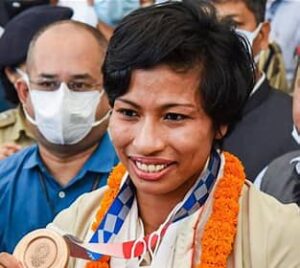Arup Kumar Dutta, a renowned author and journalist from Assam, is one of the most respected literary voices from Northeast India. With a writing career spanning over five decades, Dutta has made significant contributions to Indian literature, especially in English-language fiction for both adults and young readers. His works often bridge the gap between regional identity and national consciousness, showcasing the socio-cultural and environmental richness of Assam and Northeast India.
In this blog, we will explore Arup Kumar Dutta’s early life, literary career, major works, journalistic pursuits, awards, and his lasting impact on Indian literature and regional representation.
Early Life and Education
Arup Kumar Dutta was born in 1946 in Jorhat, a culturally vibrant town in Assam. He pursued his early education in Assam and later completed his Master’s degree in English Literature from the prestigious Delhi University. During his time in Delhi, Dutta was exposed to a broader spectrum of literature and socio-political ideas, which would later influence his writing.
After completing his education, Dutta returned to Assam and began his career in journalism and creative writing. He became a part of the emerging literary scene in the region and started contributing to national and international publications.
A Pioneer in English Literature from Northeast India
Arup Kumar Dutta is often regarded as a pioneer of English-language fiction in Northeast India. At a time when regional literature was often confined to vernacular languages, Dutta chose English as his medium of expression, making the unique stories of Assam accessible to a global readership.
Writing for Young Adults
One of Dutta’s most significant contributions has been in the field of children’s and young adult literature. He has written several adventure novels for young readers, combining entertainment with education and moral insight.
Some of his most popular books for children include:
- The Kaziranga Trail (1978): Perhaps his best-known work, this novel was awarded the prestigious Shankar’s Award and was adapted into a feature film by the Children’s Film Society of India. The story revolves around three boys who uncover a poaching racket in the Kaziranga National Park, highlighting themes of wildlife conservation and courage.
- The Blind Witness (1981): A gripping tale involving a blind boy who becomes the key witness in a kidnapping case. The novel explores themes of disability, intelligence, and bravery.
- Smack (1988): A hard-hitting story addressing the issue of drug abuse among teenagers. Dutta used his platform to sensitize young readers about real-life social issues.
- The Lure of Zangrila, Trouble at Kolongijan, The Counterfeit Treasure, and many others have remained popular for their thrilling plots, engaging narratives, and insightful messages.
His books have been part of school curricula across India and have helped cultivate reading habits in generations of young Indians.
Acclaimed Works for Adult Readers
While Dutta gained wide recognition for his children’s literature, he has also written several critically acclaimed novels and non-fiction books for adult readers.
Major Fiction Works:
- The Anagarika’s Swansong: A historical novel set during British rule, portraying the life of a Buddhist monk involved in anti-colonial struggle.
- Red Camellia Green: A psychological thriller set in Northeast India, which intertwines personal trauma with political unrest.
- The Ahoms: A historical narrative that delves into the history of the Ahom dynasty, one of Assam’s most significant ruling powers.
Non-fiction and Travel Writing:
Arup Kumar Dutta has also authored a series of non-fiction books and travelogues focusing on environmental issues, Assamese history, and the rich cultural diversity of Northeast India. Notable titles include:
- Cha-Garam: The Tea Story: A fascinating chronicle of the history and development of the tea industry in Assam, blending historical facts with contemporary observations.
- The Brahmaputra: A well-researched book that captures the geography, folklore, and cultural significance of the Brahmaputra River.
- Unicornis: The Great Indian One-Horned Rhinoceros: A tribute to one of Assam’s most iconic animals, focusing on conservation efforts and the ecological importance of Kaziranga.
His non-fiction works are widely used for academic reference and have played a key role in promoting Assam’s identity on a national and global stage.
Journalism and Editorial Work
Apart from being a prolific writer, Arup Kumar Dutta has had an illustrious career in journalism. He has contributed articles, editorials, and essays to several major Indian newspapers and magazines, including:
- The Statesman
- The Hindu
- The Times of India
- Frontline
- India Today
He was also a regular columnist and editor for local Assamese publications. His journalistic work reflects his deep understanding of the region’s political dynamics, environmental concerns, and cultural heritage.
Dutta’s journalism stands out for its analytical depth, clarity of thought, and commitment to truth. He often addressed critical issues like ethnic identity, insurgency in the Northeast, corruption, and developmental challenges, offering nuanced perspectives rarely found in mainstream national media.
Awards and Recognition
Arup Kumar Dutta’s literary excellence has been recognized through multiple prestigious awards:
- Padma Shri (2018): He was conferred the Padma Shri, India’s fourth-highest civilian award, for his contributions to literature and education. This national recognition highlighted his role in shaping modern Indian writing and popularizing Northeast Indian stories.
- Shankar’s Award for Children’s Literature (1979): For The Kaziranga Trail.
- National Awards for Journalism and Literature: Over the years, Dutta has received several state and national accolades for his contribution to literature and journalism.
He has also been invited to literary festivals, academic seminars, and international conferences as a speaker and panelist.
Contribution to Regional Identity and Representation
One of the most powerful aspects of Arup Kumar Dutta’s writing is its authentic representation of Assam and the Northeast. Whether through fiction or non-fiction, he brings forth the voices, landscapes, and issues of the region with dignity and depth.
At a time when Northeast India remained underrepresented in mainstream Indian literature, Dutta’s works served as a bridge between cultures, educating readers across India and abroad about the vibrant histories, ecological treasures, and everyday lives of people in Assam.
His stories are not just set in Assam—they are deeply rooted in the region’s ethos. He writes about wildlife conservation, indigenous communities, historical conflicts, and the Assamese way of life without exoticizing them, thereby creating authentic narratives that resonate with truth and empathy.
Legacy and Influence
Arup Kumar Dutta’s influence can be seen in the growing number of writers from Northeast India who now write in English and other Indian languages. He opened doors for regional writers to enter the national literary discourse without compromising their unique voices or cultural identities.
In Assam, he is not just a writer but a literary institution, whose works continue to inspire students, teachers, scholars, journalists, and activists. His children’s books remain bestsellers in school libraries, and his novels and non-fiction books are widely referenced in academic research on Assamese culture, wildlife, and history.
Conclusion
Arup Kumar Dutta is a towering figure in Indian literature and journalism, whose work has illuminated the soul of Assam and Northeast India for decades. Through his fearless journalism, compelling fiction, and insightful non-fiction, Dutta has gifted generations of readers with stories that are rooted in truth, adventure, and cultural richness.
His legacy is not only literary but also social—he has played a crucial role in building awareness about wildlife, education, regional identity, and youth empowerment. As readers continue to discover his timeless works, Arup Kumar Dutta remains a beacon of integrity, intellect, and imagination in Indian literature.






